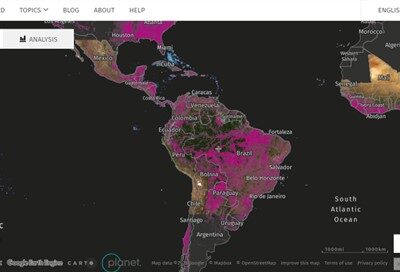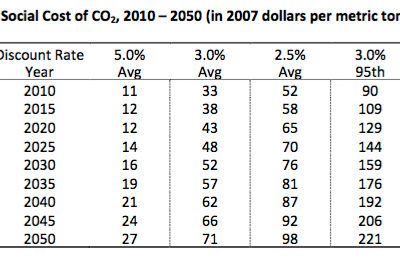Climate Change
Are California Cities Ready for an Equitable EV Transition?
How well are cities planning for the transition, and how can we track readiness?
A recent report from ACEEE reinforces California’s leadership in vehicle electrification–at the state level, California’s EV policies, incentives, and supporting strategies outpace the closest competitors by a significant margin (and most pro-electrification states’ programs owe their design and federal authorization to California): Source: ACEEE, 2023 Transportation Electrification Scorecard. But with …
Continue reading “Are California Cities Ready for an Equitable EV Transition?”
CONTINUE READINGThe Riddle of the Maldives
The Maldives is one of the nations most vulnerable to rising sea levels. So, why is climate change not a topic of discussion here?
It was the site for one of the most iconic climate policy photos. In the run-up to the Copenhagen climate negotiations in 2009, President Mohamed Nasheed held a cabinet meeting in scuba gear 20 feet underwater to show what awaited the low-lying island nation of the Maldives if serious action were not taken to reduce …
Continue reading “The Riddle of the Maldives”
CONTINUE READINGMeasuring Tropical Forests and Deforestation from Space
Remote sensing is one important tool in the toolbox of forest governance for monitoring, measuring, and reducing deforestation
In a world where a swipe on a smart phone enables navigation from one part of the globe to another, many technology companies, investors, environmental organizations, community groups, and policymakers are looking to remote sensing data and platforms to increase transparency, accuracy, speed of decision-making, and reduce costs of monitoring land-based activities at scale. Advancements …
Continue reading “Measuring Tropical Forests and Deforestation from Space”
CONTINUE READINGMaking Building Decarbonization Work for LA Renters
A new UCLA report recommends policies to green existing buildings in a way that protects and supports residential tenants.
Los Angeles’ ambitious “Green New Deal” calls for, among other things, eliminating or offsetting building emissions and reducing building energy use by 44%, both by 2050. This is an impressive and ambitious target, and while the city has begun restricting some emissions from new buildings, it is still figuring out how to tackle the far …
Continue reading “Making Building Decarbonization Work for LA Renters”
CONTINUE READINGFunding Public Transit Is Crucial for California’s Climate Goals
Transit networks need more–not less–support for state to reach 2045 carbon neutrality
It has been widely reported in recent weeks that California’s public transit systems are seeking billions of dollars in support from the state budget to avoid the fiscal cliff they are facing due to slow ridership recovery following the pandemic and shifts in work commute patterns. Without this support, the agencies will need to begin …
Continue reading “Funding Public Transit Is Crucial for California’s Climate Goals”
CONTINUE READINGThe IRA’s Implicit Cost of Carbon
Here’s a simple way to think about a hard problem.
The social cost of carbon is important in many regulatory decisions made by the executive branch. It basically measures the benefit of cutting one ton of carbon emissions. Figuring out the cost of carbon based on an analysis of climate impacts is very tricky. However, there’s another way to think about the problem: We might …
Continue reading “The IRA’s Implicit Cost of Carbon”
CONTINUE READINGDefault and the Environment
What are the environmental impacts of Uncle Sam’s failure to pay his debts on time?
A journalist asked me how a default might impact environmental law. As I thought about it, I realized that the answers were, “In one way, very little,” and “In another way, potentially a disaster.” The effects might not amount to much. Or we could be talking about multigenerational climate impacts. There’s a lot of uncertainty …
Continue reading “Default and the Environment”
CONTINUE READING“Fully Protected” No More?
Newsom’s infrastructure package makes a big change for California species protection
Last week, the Newsom administration announced a budget trailer bill package it said was designed to facilitate the deployment of historic federal infrastructure funding for climate-friendly projects. The package consists of 11 separate trailer bills, dealing with a variety of topics ranging from the California Environmental Quality Act (CEQA) to state contracting rules. Unsurprisingly, the …
Continue reading ““Fully Protected” No More?”
CONTINUE READINGA Climate Trial in Montana Sets the Scene for More
Held v. Montana is the first of many climate lawsuits by youth plaintiffs to go to trial. Big Sky Country is a fitting forum for this phase of climate change litigation.
Young people who have the most to lose from climate change have filed lawsuits in all 50 states, but the first of these cases to go to trial will be in Montana—unofficially nicknamed “the Last Best Place”—which may be the perfect venue for a landmark trial about government culpability for the global climate crisis. Starting …
Continue reading “A Climate Trial in Montana Sets the Scene for More”
CONTINUE READINGThe Biden Power Plant Rule and the Major Question Doctrine
The new rule has hardly any of the features that caused the Supreme Court to strike down the Obama rule.
We’ve already started to hear claims that the Biden power plant rule falls under the major question doctrine, which the Supreme Court used to strike down Obama’s Clean Power Plan. Are those claims plausible? Consider the aspects of the Clean Power Plan that the Supreme Court found objectionable. I’ve identified eight factors that the Court …
Continue reading “The Biden Power Plant Rule and the Major Question Doctrine”
CONTINUE READING












